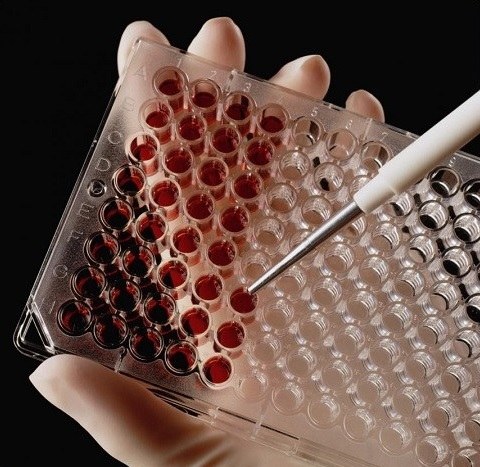You will need
- General analysis of blood indicators leukocyte formula, erythrocyte sedimentation rate; test for IgE.
Instruction
1
To identify in humans a tendency to one or another manifestation of allergic reaction, you must pass a blood test for IgE. Serum immunoglobulins (Ig) are produced by beta-lymphocytes. Their main function is the recognition and destruction of foreign antigens. Immunoglobulin E participate in the development of allergic reactions. When contact with the allergen develop clinical signs of the disease: watery eyes, nasal congestion, runny nose, swelling. In more severe cases can develop life-threatening condition angioedema and anaphylactic shock. The test for total IgE is used to detect allergies, however, to define the causative antigen is necessary to study on specific IgE. In allergic diseases the level of specific IgE-antibodies significantly increased.
2
Analysis of immunoglobulin E is prescribed in cases of suspected worm infestation, as these antibodies play an important role in the formation of anti-parasitic immunity due to their ability to interact with antigens of helminths. Therefore, the high content in the patient's blood total IgE may be indicative of the presence of parasitic infestation. In addition, this test plays an important role in the diagnosis and treatment of autoimmune diseases.
3
Blood for research is rented strictly on an empty stomach. 3 days before the analysis it is recommended to avoid fatty and spicy foods, physical and emotional load for 1 hour – Smoking. In the case of reception of any medicines, you must inform the medical laboratory. Positive test results indicate the presence of those allergens that can trigger allergic reactions. For diagnosis and choice of optimal treatment is necessary to consult an allergist.
Note
The content of total IgE in the blood can vary depending on various factors, including genetic predisposition and the action of the allergen. Its low concentration does not necessarily indicate the absence of allergic disease, because some patients may experience low total IgE but high concentration of specific IgE.
Useful advice
For the reliability of the result to a blood Allergy profile are not recommended to take immediately after radiography, fluoroscopy, rectal examination or physiotherapeutic procedures.

